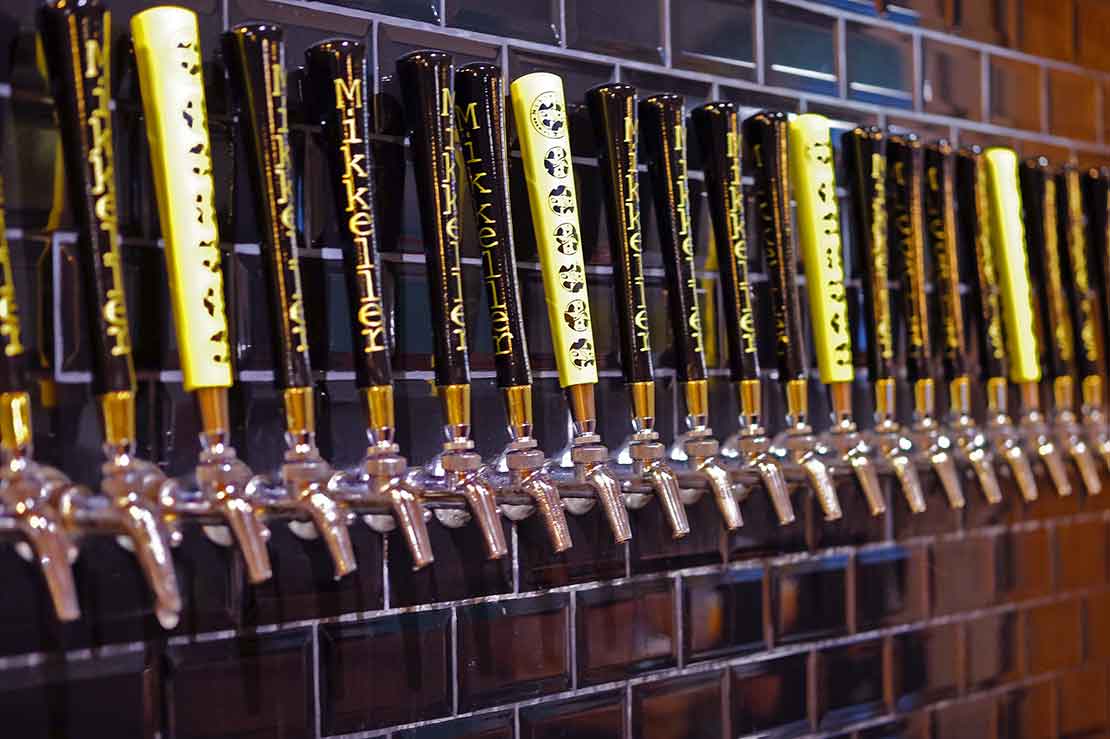Mikkeller was formed in 2006 by homebrew enthusiasts Mikkel Borg Bjergso and Kristian Klarup Keller. Inspired by a Danish craft beer movement still in its infancy and from the burgeoning craft beer scene in America, the two set out to create beers that challenge, provoke and put taste and quality over quantity and marketing.
Mikkeller rose to prominence after the release of its Beer Geek Breakfast in 2006 and has quickly gain its respect outside of the United States. In 2007, Mikkeller was voted the fifth best brewery in the world on beer rating and review site Ratebeer.com and had 6 beers in the list of the Top 100 beers in the world that same year.
Mikkeller’s reputation has seen it brew beers in collaboration with some of the best in the world - 3 Floyds, Cigar City, Nøgne Ø, BrewDog, Amarger Bryghus, De Molen , Bridge Road Brewers and Struise to name a few.
Mikkeller is now brewed and released over 70 unique beers encompassing a range of styles from Pilsners to Imperial Stouts and from India Pale Ales to Sours; despite the fact that Mikkeller does not even have its own brewery. This is called gypsy brewing.
A gypsy brewer is one who brews without an established home base - renting equipment, expertise and space from existing breweries to brew their beers allowing them to focus on creating new beers and releasing them from the constraints of owning a traditional brick and mortar brewery. Mikkeller produces its beers in various locations around Denmark and in Norway with the bulk of their beers brewed at de Proefbrouwerij in Belgium.
Mikkeller’s range of fruit blended, Belgian-inspired lambics was included in the brewing at de Proefbrouwerij. A traditional lambic [pronounced lohm-BEEK] is brewed using a process known as spontaneous fermentation where the wort is left in large shallow vats overnight to allow the wild yeasts and bacteria to inoculate the beer. Once the beer has been inoculated, it is transferred into casks for it to begin its fermentation and maturation process. The process of spontaneous fermentation often imbues lambics with tartness, funk and layers of complexity.
We can now get a taste of this range in KL by visiting Taps Beer Bar. What's even better? Ladies get 20% off!
TASTING NOTES
Spontan Cranberry: Aromas are of sandalwood and cranberry sourness with only a hint of mild yeast. Palate is light but extremely tart with flavours of cherry and cranberry.
Spontan Redcurent: Suprisingly sweet on the nose, with hints of apple and redcurrant. Palate is similar with moderate tartness.
Spontan Grape: Dominant aromas and flavours are green apple skin, tart citrusy notes and vinegar with just a hint of grapes.
Spontan Cassis: Tart and tangy with a strong blackcurrant presence and a hint of vanilla.
- T -
